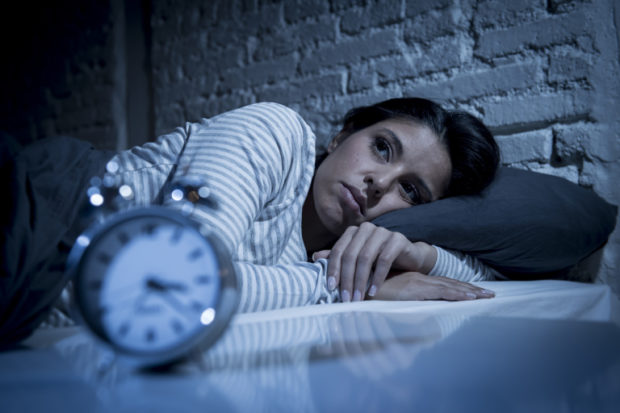
Image: OcusFocus/Istock.com via AFP Relaxnews
There’s nothing like a commute-free lifestyle that allows more time with family to reduce one’s stress levels—even amid the Covid-19 pandemic.
This is one significant finding of a global pulse survey conducted among millennials by multinational professional services Deloitte, which also reflects how Filipino millennials are feeling about and dealing with the health crisis.
Before the pandemic, Filipinos’ stress levels were at an all-time high—even higher than the global average, according to the 2020 Deloitte Global Millennial Study, which gathered responses from over 13,000 millennials across 43 countries and 4,711 Generation Z respondents from 20 countries.
Of the 300 millennials surveyed in the Philippines, 57 percent said they “feel anxious or stressed all or most of the time,” compared to 44 percent of their peers globally.
Concerns over the welfare of family and loved ones (65 percent), their physical health (54 percent), long-term financial future (53 percent), day-to-day finances (51 percent), and their job/career prospects (47 percent) were named as the main factors contributing to the high stress levels of Filipino millennials pre-Covid-19.
But the addition of the pandemic—the world’s No. 1 concern—surprisingly hasn’t raised this generation’s stress levels, based on a follow-up survey conducted by Deloitte in April and May among 13 countries (9,100 millennials). In fact, globally, this fraction of the millennial population reported feeling less stressed—from 50 percent of respondents to 42 percent.
The dip in stress levels, Deloitte said, may have been the result of the pandemic causing a general slowdown of life, the opportunity to spend more time with family and the elimination of daily commutes.
Work-life balance
While the Philippines isn’t one of the 13 countries included in the recent survey, the results of an informal poll of Deloitte Philippines’ 80 millennial staff reflect the same positive outlook despite the health crisis. The poll showed that 85 percent percent of the respondents said having the option to work from home (which was available to all Deloitte Philippines employees even before Covid-19), has helped relieve stress; 71 percent said remote working enabled them to achieve a better work-life balance.
These findings ring true with Koko Alviar, 28, who works with Ramento Project for Rights Defenders, a Church-based human rights program operated by the Iglesia Filipina Independiente.
Working in the comfort of home in Sanchez Mira, Cagayan, Alviar says he is able to accomplish a lot now because traffic isn’t a concern. Even deadlines are now more flexible and the usual workflow processes reduced to save time, he adds.
The same goes for Catherine Gonzales, a business process outsourcing (BPO) worker.
“The usual routine—[rising] early for a long commute—is really stressful, especially for people like me who travel from Pasig City to Quezon City and back, every day. Now I can wake up 30 minutes before work starts and there’s no more tiring commute, and I get to spend more time to do all things I’ve always wanted to do for myself,” says Gonzales, 32.
Deloitte Philippines’ poll also revealed that 62 percent of its millennial staff have “felt more able to bring their true selves to work, suggesting an enhanced feeling of comfort and safety” since they began working from home because of the pandemic.
One of Deloitte Philippines’ millennial tax professionals said in the survey: “I feel less stressed now because I am able to accomplish my work at home, at my own pace. Electricity costs are a bit high, but it’s nothing I can’t handle.”
Optimism
This optimism also spills over to how millennials in Deloitte Philippines view their influence on society, particularly how they can effect positive change.
Per the informal poll, 91 percent “have already taken immediate action” in order to leave a positive impact on their communities (compared to 71 percent globally), while 96 percent will “take further action to make a positive impact on their communities once restrictions are lifted (compared to 74 percent globally).
Alviar, for one, says he is putting social media to good use to raise awareness on issues relevant to the country today, especially among his kin. Also, because he has saved on transport and food costs, he says he has helped raise contributions for various foundations, as well as relief efforts he has helped organize.
Supporting local businesses
Supporting local businesses is another way its millennial employees are contributing to society’s welfare amid the pandemic, Deloitte Philippines further said.
In the poll, nearly all respondents (99 percent) said they would make an extra effort to buy from small local businesses to help these enterprises remain operational, and 79 percent said they would buy more from large businesses that had taken care of their workforce and positively impacted society during these trying times.
“We can see that personal values continue to drive millennials’ attitudes when it comes to supporting brands and exercising their purchasing power,” said Eric Landicho, managing partner and CEO of Deloitte Philippines. “This is a clear signal to business leaders that in order to gain traction with this increasingly influential generation, they are going to have to show a sincere commitment to making the world a better place for everyone, to having a purpose beyond merely profit.”